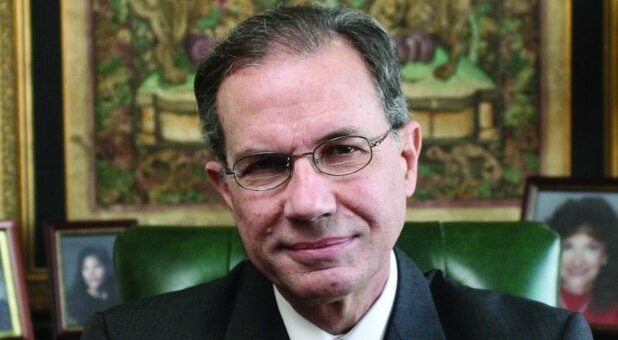Our Plan Ahead
Though this global problem has happened on our clock, so can the solution. It is time to prepare for the role that each of us can play, knowing that we are facing an impending crisis.
The Titanic was called an unsinkable ship. Yet when enough compartments were breached under the water line, the chief engineer responded to the captain: “She’s made of iron, sir. I assure you she will sink.” There was not a proper plan for evacuation of the passengers. Tragically, more than 1,500 people died because of this lack of planning.
The world will face economic restructuring—it’s inevitable. It is yet to be determined how painful the process will be. More natural disasters may occur. Or there could be a terrorist attack again on our soil. Yet undoubtedly, people will be in need. And as Christians, we must be prepared to help all. Paul was clear in his admonition to the people of the church in Rome: “I am obligated both to Greeks and non-Greeks” (Rom. 1:14, NIV).
Rick Joyner of MorningStar Ministries is a national emergency preparedness trainer and certified responder. He and his teams were some of the first responders to the Hurricane Katrina disaster. His observations were that the first two weeks were chaos. People literally took the law into their own hands. The second two weeks, Marshall Law set in and the federal government and National Guard established order. The third two weeks, civic operations and charitable organizations—along with the federal and state governments—established a system for providing basic services and order was sustained.
I believe this can be an example to us for what to expect and how to respond when there is a breakdown in distribution of basic supplies and services.
Many churches are prepared to help and have done so locally. Christians have responded by providing aid to areas of fire, flood, earthquakes and other natural disasters. Many have volunteered their time and talents. In fact, in the aftermath of Hurricane Katrina, so much charitable aid came at one point that it was difficult to organize and distribute the aid packages. A better plan of organization is needed.
If a major national disaster occurred that impacted several states, a large region or the entire country, a national network plan, locally implemented, could not only be beneficial but critical.
No one knows what the transition to restructured government services will look like. It may be dramatic in its impact or it may be a slow, downward-spiraling process. But the reality of economic reconciliation is coming. Christians must be prepared to help. In doing so, the harvest will be enhanced. By sacrificing for others, sharing and providing basic needs and services, we will demonstrate Christ’s love. In showing love for others, our evangelical purpose is fulfilled.
A person’s responsibility is first to his family, then to the body of Christ, then to all fellow brothers and sisters, and last, himself. If every church in America prepared its members to take care of themselves and one other non-church member per church member for six weeks, the entire U.S. population would be covered for critical needs. I’m not suggesting that churches spend money or stock up on supplies. I am suggesting that churches have a plan to prepare for a harvest that could be at hand.
Most Americans have enough food in their cupboards to survive for a couple of weeks. We are a blessed nation in abundance. If each church had a plan simply to coordinate all the cupboards within its congregation, those in the church would be surprised at how much food they already have. And if society saw churches as islands of refuge, places to go for help and advice, then the first two weeks would not have to result in people taking the law into their own hands.
All states have emergency preparedness plans, but few states have actual statewide emergency plans. If church leaders were prepared for any crisis and informed the local sheriff or police of their willingness to help when a crisis developed, then they would be easily included in the process of creating coordinated plans. For example, I know of churches in Oklahoma and Alaska that have successfully begun this process of coordinated planning with local governments.
























